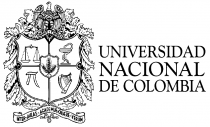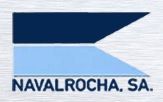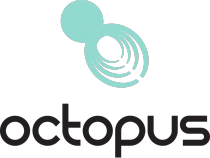UC Berkeley ROAR Racers Among Top Teams to Demo Next-Gen Autonomous Racecars at CES 2024
The University of California, Berkeley, Robot Open Autonomous Racing (ROAR) program, together with its multi-university partners comprising the AI Racing Tech team, will serve among three leading international teams to test out the next-gen Indy Autonomous Challenge (IAC) racecar. The updated world’s fastest and most advanced autonomous racecar will be unveiled at CES 2024, held January 9-12 in Las Vegas, NV.
Three top racing teams from this year’s IAC competition will test out the next-gen model, with its upgraded controls, perception sensors, qualified systems, and other improvements on the original Dallara AV-21 introduced in 2021. The manufacturer’s Autonomous Vehicle (AV) series is based on the classic carbon-composite Indy NXT chassis – similar in size, weight, and performance to racecars Indy drivers have driven to victory, with one major distinction: no driver’s seat. Instead, the cockpit is outfitted with specialized hardware and high-performance controls to provide complete driverless operation.
This high-stakes “sim-to-real” environment demands extreme autonomous robotics, designed to advance not only the future of automated transportation, but also other industries requiring the highest performance and safety assurances, such as aerospace, defense, and healthcare.
The AI Racing Tech Team is made up of faculty and students in AI and robotics at four universities: Carnegie Mellon University, University of Hawai’i, and University of California, San Diego, as well as UC Berkeley. The team’s industry sponsors are HTC Vive, VIA Technologies, ByteTrade Lab, New Eagle LLC, Pratt Miller, ZblueSoftware, ADLINK, Luxonis, AVA Mobility, Point One Navigation, and Hitch Interactive.
“This close collaboration with industry – including hardware and software designers and manufacturers – is an unprecedented opportunity for our students and faculty to be part of the historic development of next-gen hardware and talent,” says S. Shankar Sastry, ROAR faculty director and UC Berkeley professor of electrical engineering and computer science. “We look forward to setting new speed records with the advanced model as it rolls out.”
"We are thrilled to have the ROAR Program on board as part of the IAC’s AI Racing Tech team, paving the way for the future of autonomous driving,” says Paul Mitchell, President, Indy Autonomous Challenge. “The team will have a chance to showcase their engineering prowess as they put the next-gen IAC racecar – the world’s fastest autonomous racecar – to the test at CES 2024.”
Stay tuned at AIRacingTech.com and follow @AIRacingTech on YouTube, X, Facebook, Instagram, and LinkedIn.
The UC Berkeley Robot Open Autonomous Racing (ROAR) program
The UC Berkeley Robot Open Autonomous Racing program (ROAR) was launched in 2019 to advance solutions of Autonomous Systems, Intelligent Machines, and Human-in-the-Loop Control for extreme robotics applications. Its faculty and students have extensive experience in developing high-performance algorithms for 3D Perception, Model Predictive Control, Reinforcement Learning, Generative AI, and Simulation and Virtual Reality, and have received major funding from NSF, ONR, ARL, DARPA, along with industry sponsors.
The AI Racing Tech Team
The AI Racing Tech Team, the most decorated U.S.-based team participating in the Indy Autonomous Challenge, pushes untested boundaries and drives research to ensure the highest caliber of safety for the future of commercial autonomy. Co-led by UC Berkeley Principal Investigator Allen Yang and AI Motorsports Race Principal Gary Passon, the team includes faculty and students from the University of Hawai’i, Carnegie Mellon University (led by P.I. John Dolan), and UC San Diego (led by P.I. Jack Silberman). Technical co-leads are Siddharth Saha, Haoru Xue, C.K. Wolfe, Chris Lai, and Tianlun Zhang.
The Indy Autonomous Challenge
The Indy Autonomous Challenge (IAC) organizes racing competitions among university-affiliated teams from around the world to program fully autonomous racecars and compete in a series of history-making events at iconic tracks. Based in Indiana, IAC is working to establish a hub for performance automation in the state and is harnessing the power of innovative competitions to attract the best and brightest minds from around the globe to further state-of-the-art technology in safety and performance of automated vehicles. The IAC started as a $1 million prize competition with 31 university teams signing up to compete more than three years ago, representing top engineering and technology universities from 11 countries, including 15 U.S. states.
View source version on businesswire.com: https://www.businesswire.com/news/home/20231215833043/en/




